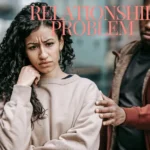Reconnecting with an ex after a breakup can be a rollercoaster of emotions. Did you know many couples give their relationship another shot? In this guide, we’ll dive into getting back together after a breakup.
We’ll cover everything from the types of breakups that often lead to reunions to whether it’s a smart move for your future. Whether you’re thinking about rekindling an old flame or just curious about relationship dynamics, this guide is for you!
Reconnecting with an Ex: Tips for Getting Back Together After a Breakup
Getting back together after a breakup can feel like a daunting task, but it’s a journey many people embark on with hope. Understanding the process and knowing what to look for can make a big difference in whether your reunion is successful.
Here’s a simple guide to help you navigate getting back together after a breakup:

- Reflect on the Breakup: Before considering reconciliation, take time to think about why the breakup happened. Did underlying issues remain unresolved? Understanding these reasons can help you determine if they’re fixable or if they’ll just resurface.
- Assess Personal Growth: People change over time. Reflect on how you and your ex have grown since the breakup. Have you both worked on the issues that caused the split? Growth and change are crucial for a healthier relationship if you choose to reconnect.
- Open Communication: Honest conversations are key. Discuss your feelings, concerns, and expectations openly with your ex. Clear communication can help both of you understand if you’re on the same page and if getting back together is the right choice.
- Set Realistic Expectations: Reuniting with an ex doesn’t mean everything will magically fall into place. Be prepared for challenges and setbacks. Setting realistic expectations about what reconciliation will involve can prevent disappointment and frustration.
- Consider Relationship Counseling: Sometimes, having a neutral third party can help. Relationship counseling can provide guidance and tools to address ongoing issues, improving your chances of a successful reunion.
- Focus on Trust and Respect: Trust and respect are the foundation of any strong relationship. Make sure that these core elements are present and strong before considering getting back together. Without them, the same problems may arise.
- Take It Slow: Rebuilding a relationship takes time. Don’t rush the process. Take things one step at a time, and allow the relationship to develop naturally. This will give you both a chance to adjust and ensure that you’re making a thoughtful decision.
By keeping these tips in mind, you can better navigate the complex journey of getting back together after a breakup.
Remember, it’s important to be honest with yourself and your ex about your motivations and goals. This approach will help you make a decision that’s right for both of you and increase your chances of a happy and healthy reunion.
Types of Breakups That Often Lead to Reconciliation

Understanding why relationships end can help you figure out if getting back together is possible. Here’s a simple guide to the types of breakups and what they mean for your chances of reconciliation:
- Understanding the Breakup Dynamics: Breakups happen for many reasons. Sometimes it’s because of ongoing issues like trust problems or communication breakdowns. Other times, it might be due to external factors like stress or life changes. Knowing why you broke up can give you a clearer idea of whether the issues can be fixed.
- Temporary Breaks vs. Permanent Endings: Some breakups are just a pause, not the end. Temporary breaks are often used to cool off or figure things out, and there’s a good chance of getting back together if both people are willing to work on the relationship. Permanent endings, on the other hand, usually mean that the issues were too big to overcome, and getting back together might not be realistic.
- Mutual vs. Unilateral Breakups: How a breakup happens can affect your chances of reconciliation. A mutual breakup, where both partners agree it’s best to part ways, might leave room for getting back together if both people feel differently later on. In contrast, a unilateral breakup, where one person decides to end things, can be harder to overcome. The person who didn’t want to break up might find it difficult to rebuild trust and move forward.
By understanding these types of breakups and their dynamics, you can better assess whether getting back together after a breakup is the right choice for you and your ex.
Read More: how to build trust in relationship
How Long After a Breakup Do Couples Typically Reunite?

Wondering how long it takes for couples to getting back together after a breakup? Here’s a simple look at the average timeline and what can affect it:
- Statistical Insights: Studies show that there isn’t a one-size-fits-all answer. On average, couples who do get back together might reunite within a few months to a year. However, this can vary widely depending on individual circumstances and relationship history.
- Factors Influencing Reconciliation Time: Several things can affect how quickly a couple gets back together. These include:
- Reason for the Breakup: If the breakup was due to minor issues, couples might reconcile faster. Serious problems might require more time to work through.
- Communication: How well both people communicate and resolve conflicts can speed up or slow down the reunion process.
- External Influences: Life changes, such as moving or starting a new job, can impact the timing. Sometimes these factors can either bring people back together or keep them apart.
- Personal and Relationship Growth: Time apart can lead to significant personal growth. If both people have used the time to work on themselves and address past issues, they might find it easier to reunite. Growth can make it possible for both partners to approach the relationship with a new perspective, making reconciliation more successful.
Is It a Bad Idea to Get Back Together After a Breakup?

Thinking about getting back with your ex? Here’s a straightforward look at whether getting back together after a breakup might be a good or bad idea:
Pros and Cons:
- Benefits: Getting back together can mean rekindling a deep connection and shared history. If both people have grown and learned from past mistakes, it could lead to a stronger relationship and a better understanding of each other.
- Downsides: Reuniting might bring back old problems and conflicts. If the issues that caused the breakup haven’t been resolved, they could resurface and potentially make things worse than before.
Red Flags and Warning Signs: Watch out for these signs that getting back together after a breakup might not be the best idea:
- Unresolved Issues: If major problems from the past are still present and haven’t been addressed, they could lead to more trouble and repeated arguments.
- Lack of Change: If one or both of you haven’t changed or worked on personal growth, old habits and conflicts might just repeat, making reconciliation less effective.
- Toxic Patterns: If the relationship was unhealthy or abusive, getting back together might not be safe or beneficial. It’s important to avoid falling into harmful patterns.
Evaluating Compatibility: To see if getting back together after a breakup can work this time:
- Assess Your Growth: Have both partners grown and learned from the breakup? Personal growth is crucial for building a healthier relationship.
- Communication and Trust: Are you both ready to communicate openly and rebuild trust? Strong communication and trust are essential for a successful reunion.
- Shared Goals and Values: Do you both still share the same goals and values for the future? Compatibility in these areas can help ensure that the relationship will be lasting and fulfilling.
By considering these factors, you can better evaluate whether getting back together after a breakup is the right choice for you and your ex.
What Percent of Couples Get Back Together After a Breakup?
Curious about how many couples actually reunite after breaking up? Here’s a clear breakdown of the statistics and factors involved in getting back together after a breakup:
Statistical Overview:
- General Statistics: Research shows that around 30% to 50% of couples who break up end up getting back together at some point. This number can vary depending on the study and sample size, but it gives a general idea of how common reunions are after a breakup.
- Long-Term Reunions: Of those couples who get back together, about 50% will remain together for a significant period. This suggests that while many do reunite, not all couples find lasting success after getting back together.
Variations by Relationship Type:
- Short-Term vs. Long-Term Relationships: Couples in long-term relationships might be more likely to reunite due to the deep emotional bonds and shared history. Short-term relationships might see fewer reunions as the connection may not be as strong.
- Casual vs. Serious Breakups: Reconciliation rates can differ based on the nature of the breakup. Casual relationships or those that ended over minor issues might have higher chances of getting back together compared to more serious breakups involving significant conflicts.
Influencing Factors:
- Reason for Breakup: Couples who broke up due to temporary issues, like stress or external pressures, may have a higher chance of reuniting than those who ended things over deeper, unresolved conflicts.
- Personal Growth and Change: If both partners have grown and changed positively since the breakup, they might be more likely to reunite successfully and build a stronger relationship.
- Communication and Effort: Effective communication and a mutual desire to work through past issues are crucial. Couples who actively work on these aspects have a better chance of successfully getting back together and making their relationship last.
Understanding these statistics and factors can give you a better idea of what to expect if you’re considering getting back together after a breakup. Every relationship is unique, so while these numbers provide a general guide, the outcome will depend on your specific situation.
How to Know If Your Ex Will Never Come Back
Wondering if your ex is likely to return or if it’s time to move on? Here’s a guide to help you figure it out when considering getting back together after a breakup:
Signs That Reconciliation Is Unlikely:
- Lack of Communication: If your ex isn’t reaching out or responding to your messages, it might be a sign they’re not interested in reconnecting or getting back together after a breakup.
- Moved On Quickly: If your ex has quickly entered a new relationship or seems to have moved on, they may not be considering getting back together.
- Clear Statements: Sometimes, your ex might explicitly state that they don’t want to get back together or that the relationship is over for good.
Understanding Their Perspective:
- Personal Reasons: Your ex might have personal reasons for not wanting to reunite, such as a need for independence or new life goals that don’t include you. Understanding their perspective can help clarify their stance on getting back together after a breakup.
- Emotional Closure: They may have reached emotional closure and feel that getting back together wouldn’t benefit either of you. Recognizing this can provide insight into their reluctance.
- Previous Issues: If the breakup was due to significant and unresolved issues, your ex might believe that reconciliation would only lead to repeating those problems.
Moving On and Acceptance:
- Focus on Yourself: Redirect your energy towards personal growth and self-improvement. Engaging in new hobbies, pursuing goals, and spending time with loved ones can help you move forward and prepare for the possibility of getting back together after a breakup.
- Accept the Reality: Acceptance is a crucial step in moving on. Acknowledge that the relationship has ended and it’s okay to feel sad, but also recognize that it’s time to look ahead.
- Seek Support: Surround yourself with supportive friends and family, or consider talking to a therapist. They can help you process your emotions and provide guidance as you navigate whether getting back together after a breakup is the right choice.
Understand these aspects can help you determine whether getting back together after a breakup is a realistic option or if it’s time to focus on moving forward.
Do Couples Come Back Stronger After a Breakup?
Can a breakup lead to a stronger relationship if you decide to get back together? Here’s a look at how breakups might pave the way for growth and renewal:
Potential for Growth:
- Self-Reflection and Improvement: Breakups often provide time for self-reflection. Partners can work on personal issues and improve themselves, which can lead to a healthier relationship if they reunite.
- Better Communication: Time apart can highlight communication problems. If both partners address these issues, they might come back with improved communication skills and a better understanding of each other.
- Renewed Appreciation: Being apart can help partners recognize what they truly value in each other, leading to a stronger appreciation and commitment when they come back together.
Challenges and Opportunities:
- Overcoming Past Issues: Reuniting means addressing past problems that led to the breakup. Successfully navigating these challenges can strengthen the relationship.
- Building Trust: Rebuilding trust is a common challenge. If both partners work on honesty and reliability, they can create a stronger foundation for the future.
- Setting New Boundaries: A breakup can reveal necessary changes in relationship dynamics. Setting new, clear boundaries can help prevent old issues from resurfacing.
Success Stories and Lessons Learned:
- Example 1: Sarah and Tom: After breaking up due to communication issues, Sarah and Tom took time apart to work on their individual problems. They learned to communicate more effectively and rebuilt their relationship with a stronger connection and understanding.
- Example 2: Emma and Jack: Emma and Jack’s breakup stemmed from career stress. During their time apart, they both found better work-life balance and reconvened with a renewed focus on supporting each other’s goals. Their relationship became more resilient as a result.
- Lessons Learned: Successful reunions often involve recognizing and addressing the root causes of the breakup. Key lessons include the importance of personal growth, improved communication, and mutual commitment to change.
Reuniting after a breakup can indeed lead to a stronger relationship, provided that both partners are willing to address past issues and embrace personal growth. By overcoming challenges and learning from past experiences, couples can create a more resilient and fulfilling relationship.
Conclusion
Reuniting with an ex after a breakup is a big decision that needs careful thought. If you’re thinking about the right timing, the chances of making it work, or how it will affect your future, understanding the details of getting back together after a breakup can help you decide. Every relationship is different, so the best choice is one that matches your personal growth and happiness. Curious about getting back together with your ex? Reflect on these points, trust your feelings, and choose what feels right for you!
FAQ
1. Who suffers more after a breakup?
Breakups can be tough on everyone, but emotional pain varies between individuals. Generally, the person who was more invested or blindsided by the breakup might experience deeper emotional distress. However, each person’s experience is unique, and both partners can suffer in their own ways.
2. Who moves faster after a breakup?
Typically, the person who initiated the breakup may move on more quickly, as they might have already processed their feelings. However, this isn’t always the case—some people might move on faster due to personal coping strategies or new distractions.
3. Do men heal faster after a breakup?
Healing speeds differ for everyone, regardless of gender. Some men might appear to move on quickly due to their coping mechanisms or societal expectations to suppress emotions. In reality, healing is a personal journey and varies greatly from person to person.
4. What makes a man miss a woman after a breakup?
A man might start missing his ex due to the nostalgia of shared experiences, recognizing her value in his life, or realizing the relationship’s true impact. Emotional triggers, such as seeing her with someone else or reminiscing about special moments, can also spark feelings of longing.
5. Who ends relationships more often?
Statistically, women are often more likely to initiate breakups. Studies suggest that women may end relationships more frequently due to dissatisfaction or differences in long-term goals. However, the dynamics can vary widely depending on individual circumstances and relationship contexts.
6. What to do immediately after a breakup?
Right after a breakup, focus on self-care and emotional processing. Surround yourself with supportive friends and family, engage in activities you enjoy, and give yourself time to grieve. Avoid making major decisions or drastic changes until you’ve had time to heal.
7. How to accept a breakup you didn’t want?
Accepting a breakup when you didn’t want it involves acknowledging your feelings and allowing yourself to grieve. Reflect on the reasons for the breakup, focus on personal growth, and gradually shift your attention towards healing and moving forward. Seeking support from friends, family, or a therapist can also help in the acceptance process.










